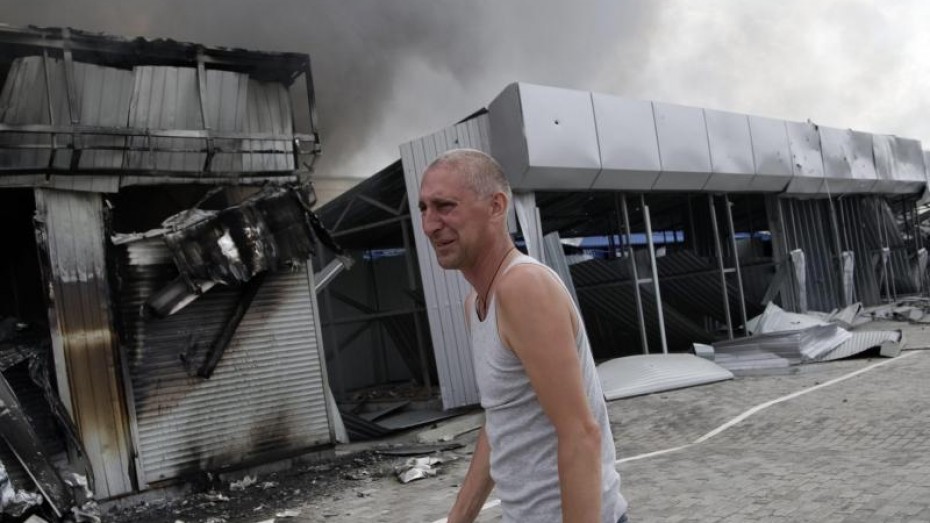Artistic Report on Catastrophes and Utopia
Since beginning of June this year fighting between pro-Russian rebels and government forces escalated again in Ukraine. A cease-fire did not exist in reality. Last weeks fightings are the heaviest since the ceasefire signed in February. Against the background of this new Cold War atmosphere the Russian artist group Chto Delat („What is to be done?“) had a past show in spring in Berlin at KOW Berlin titled Time Capsule expressing the hopelessness of this kind of conflicts in a world order that ignores the demands and needs of its population.

World is changing and artists are seeking for new approaches to cope with the modern challenges. While French artist and architect Leopold Lambert is turning our cartographic habits up-side-down and focusses on governmental structures inspired by ancient Greek polis-systems, the Russian collective Chto Delat is asking in their Berlin exhibition what could art be at a moment when familiar politics and everyday life start falling apart?
For Chto Delat, which is built around members as Tsaplya Olga Egorova, Nikolay Oleynikov and Dmitry Vilensky, current life circumstances result in the following question: how can we carry on creating, speaking and living when we are all frozen at our computer screens in hopeless anxiety, trying to make sense of the bloody mixture of contradictory and manipulated information, seething hatreds, madness and desperation while the chance to be heard is ever more limited?
They complain of „a new Cold War atmosphere“ arising, massive repressions happening towards oppositionals in their country and a military operation going on in Ukraine taking its tall with thousands of deads on both sides. Chto Delat does not supply answers to all the rising questions but admits the belief that someone in the future will be able to encounter the contents.
Existing since 2003 and based in St. Petersburg, the former works of Chto Delat often spoke of hope and revolutionary optimism. They developed combinations of Brechtian songspiels, participatory theater, public actions and propaganda cheering for an utopian communist alternative to the current political and economical agenda. Capitalism already led to the catastrophe, they state, but world is not willing to face this fact yet: „Until there is no hope, true revolutionary action is postponed“, says Oxana Timofeeva.
[widgetkit id=18610]
And this means we can connect ourselves to the future. Our time capsule has the shape of a heart connected to an ear. Each of us laid one special thing, something dear to him or her, in an empty space inside the heart. Then we sent this “heart-ear capsule” into the future. Because we believe the future will happen. Let’s make sense together out of this simple fact, they concluded in their recent exhibition at KOW Berlin.
At KOW they constructed a labyrinth of blown-up newspapers reporting on the war in Syria, Ebola, military convoys and ISIS. The installation’s centre contained a video, showing activist friends discussing the events until, in mid-speech, their voices lose all meanings. They crack up, stand up, become bodies and come together – as a communitiy of people, who are awake and perplexed, afraid and alter, who need each other.
The resignation of Chto Delat became figurative once more by a violent act aiming to destroy one of their pieces of art: A six metre high paper board soldier carrying a shield of the antifascistic action was set on fire by unknown people in Berlin and lateron partly rebuilt by Chto Delat. As a resurrected (zombie) soldier the sculpture returned, provided with inner monologues on the mutilation of a self, his body, perception and ideals.

